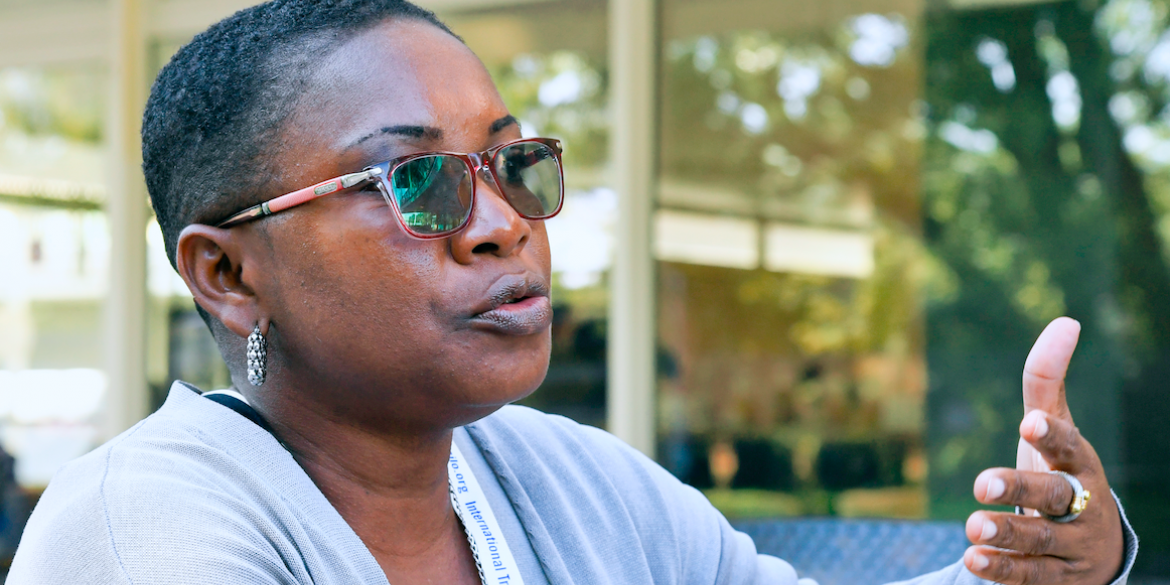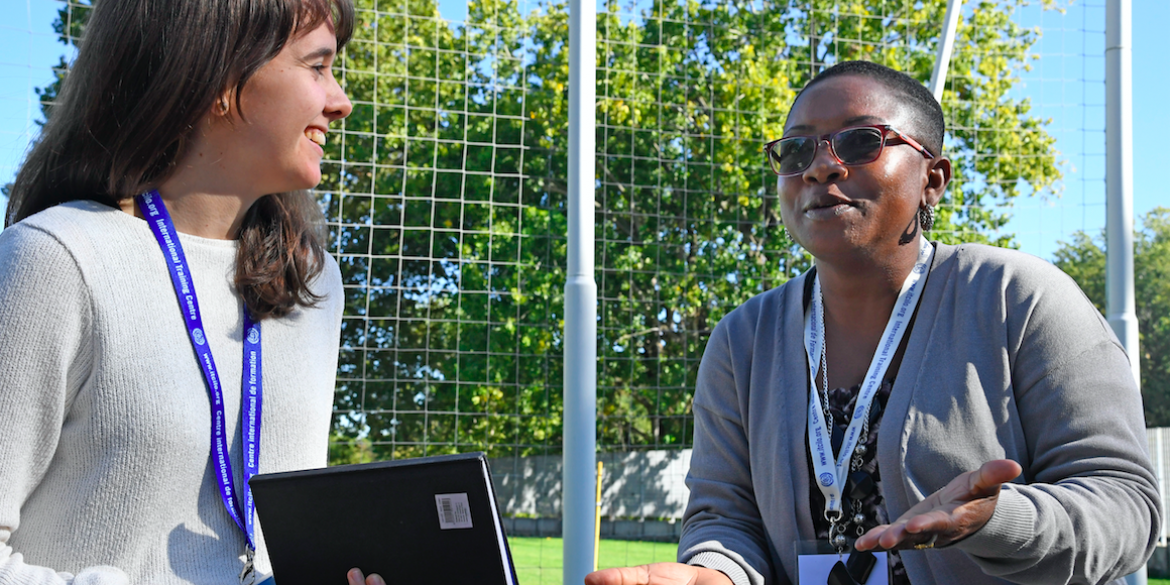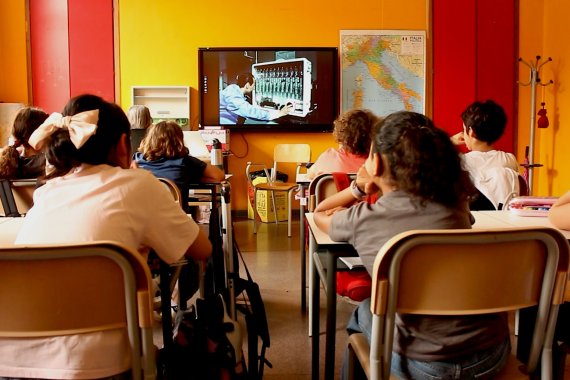Changing Our Story
Changing Our Story
A dialogue from the Decent Work for Domestic Workers course with Sandrine Emma Chiepo Akaffou, the Assistant General Secretary for Domestic Workers in Côte d’Ivoire
3 December 2019

During a coffee break in the midst of the Decent Work for Domestic Workers course, I sat with Sandrine Emma Chiepo Akaffou from Côte d’Ivoire, where she currently acts as the Assistant General Secretary for Domestic Workers. Our conversation ranged from her daily source of inspiration to her vision of the future.
Dive into Domestic Work
There has been increasing recognition, nationally and internationally, of the economic and social contribution made by domestic workers and of the need to improve their living and working conditions. The course Sandrine participated in at the International Training Centre of the ILO aims to promote inter-regional dialogue among the different actors involved in the promotion of decent work for domestic workers, and to enhance institutional capacities to ensure that they are adequately protected.
For Sandrine, her involvement in advocating for domestic worker rights stems from a personal place: “I myself am a domestic worker. I feel passionate about this job because I was an employer for ten years and I had to find myself in the position of an employee to come to terms with the reality of domestic work.”
Throughout her years of experience she has noted significant positive change in the field of domestic work: “Before the population viewed domestic workers differently, but today this view is changing. People are beginning to realize that domestic work is a proper job that can resolve issues related to unemployment and immigration.”
If this job is formalized, why go elsewhere? I would rather stay in my country and work because this job allows me to live a decent life, this job allows me to put my kids in school, this job allows me to guarantee my retirement.
This shift in perspective nevertheless comes with a series of challenges. Côte d’Ivoire is slowly making progress towards formalizing this sector.
“Thankfully, we have Convention 189 that covers these workers today,” she states. “Only nine countries ratified this Convention, but I think that in certain countries there are legislations that cover these workers and we can begin to adopt them through advocacy,” she expresses hopefully.
Confidently Moving Forward
When talking about the future, Sandrine sets the bar high. She envisions having “a domestic work trade union that is very strong. And domestic workers having the right to negotiate their contracts and benefit from social security.”

She is fully committed to granting equal rights for domestic workers through legalizing placement agencies, establishing employer platforms, and guaranteeing the safety of women.
Domestic work is present throughout the world. These workers can contribute to the development of countries and nations.
Today in Côte d’Ivoire, domestic workers are sought after. “The demand is high because the population is aging and women are now working as doctors, etc. They need domestic workers at home to take care of the children, families, and relatives,” she explains. “We will inevitably formalize this sector. We will win,” she assures.
The Root of Inspiration
Sandrine has an infectious drive and positive outlook on the future. Where does this inspiration come from? We further discussed how she spends her time outside of work.
“Reading,” she affirms. “Reading novels, stories about life, people who succeeded in their life often in difficult conditions yet they overcame these obstacles,” she elaborates.
I tell myself that nothing is impossible, regardless of the struggle we’re facing. We are the only ones who can change our story. No one will do it for us. We must change the situation.

Discovery is the key to success for Sandrine, whether in a novel or through her travels. Her affiliation with the International Domestic Workers Federation led her to workshops in Tanzania, Kenya, and Rwanda. Last June, she also participated in the International Labour Conference in Geneva, in which Convention 189 was adopted.
She finds utmost value in these international environments. At the ITCILO, she found the atmosphere particularly stimulating: “Not only are multiple nations present, but the exchange of knowledge on what is being done in other countries really impressed me.”
“You must exchange, talk, move, explain—this is my passion.”


